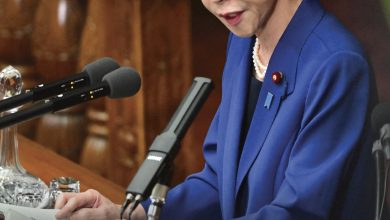MONEY LAUNDERING
HOMES FOR DIRTY MONEY
The UK tightens laws to stop criminals using real estate to conceal ill-gotten gains – Rajika Jayatilake reports
Ill-gotten gains can’t be spent in the open; they need to be hidden from the inquisitive eyes of the world until the passing of time makes people forget. It’s this fear of exposure that makes money launderers hide their money in property – most often, exclusive property.
Over the years, this has been an effective way of laundering money stolen by corrupt officials from countries they were meant to serve. Through real estate transactions, black money merges in the legal economy to end up as safe investments. After many years have passed, these money launderers can sell these properties to legitimate buyers and make their ill-gotten cash ‘white’ again.
Former British Prime Minister David Cameron once said: “The evil of corruption reaches into every corner of the world and lies at the heart of the most urgent problems we face.” And Indonesia’s Finance Minister Sri Mulyani Indrawati has observed that “corruption, money laundering and tax evasion are global problems, and not challenges only for developing countries.”
Money launderers across the globe have found the UK to be an attractive hideaway for their ill-gotten wealth. This unsavoury reality was exposed when the global anticorruption nonprofit NGO Global Witness recently disclosed that over 87,000 properties in England and Wales are owned by anonymous companies registered in tax havens.
According to Her Majesty’s Land Registry, which is a non-ministerial department of the British government, the value of these 87,000 properties is at least UK£ 56 billion (more than US$ 70 billion). It’s said that this amount is likely to exceed 100 billion pounds when taking inflation and missing price data into account.
While tracing the ownership of properties last year, it was found that about 10,000 of these in Westminster, 5,729 in Kensington and Chelsea, 2,320 in Camden and 1,930 in Tower Hamlets were owned by anonymous companies.
Transparency International (TI) UK said that by using open-source material, it identified 421 properties worth over UK£ 5 billion (around 6.5 billion dollars) had been purchased with questionable wealth. Checking the land titles for these properties, TI identified 56 law firms involved in facilitating 132 of these transactions. Most of them had as registered addresses those of secret shell companies that were used to hold the properties.
Furthermore, upon analysing the Land Registry’s available database on UK property owned by overseas companies, TI discovered that the 56 law firms it had identified were also connected to at least 4,200 more transactions involving similar anonymous corporations. The real owners behind those companies are as yet unknown.
A 2018 investigation by the Organized Crime and Corruption Reporting Project (OCCRP) and the BBC – using data from the Paradise Papers – shows how a notorious Ukrainian crime group from Odessa had been investing laundered money in exclusive London real estate.
Global Witness campaigner in the UK Chido Dunn claims that “our property market is serving as a money laundering vehicle for the world’s criminal and corrupt. But we can stop this happening. Real estate agents should be made to identify the real buyers of properties rather than simply the paper companies they hide behind.”
In her speech at the recent State Opening of Parliament, Queen Elizabeth II announced that the British government will introduce a register of the real owners of UK properties.
And the Head of Advocacy at Transparency International UK Rachel Davies Teka noted: “Our research has shown time and again that the UK property market is a safe haven for dirty money. It’s therefore very welcome to see legislation in the Queen’s Speech that will close a loophole that allows criminals and the corrupt to hide their ownership of property.”
This legislation is the Overseas Entities Bill, which will require all foreign companies owning real estate in the UK to reveal their ultimate beneficial owners. This new law will enable enforcement agencies to seize hundreds of British properties alleged to be owned by corrupt politicians, tax evaders and criminals across the world.
The UK’s point person on anticorruption emphasised that there needs to be a concerted effort internationally to coordinate the laws of different countries so the owners of shell companies can be coerced into revealing the true owners of real estate.
According to research, the UK and its corporate tax haven network is the world’s greatest enabler of tax evasion.
British territories and dependencies accounted for four of the 10 places that have done the most to proliferate corporate tax evasion on the Corporate Tax Haven Index. At the top of the list are the British Virgin Islands, followed by Bermuda and the Cayman Islands – all of which are British Overseas Territories.
A British government spokesperson commented that tackling tax evasion is a priority, adding that the UK had “been at the forefront of international action to reform global tax rules.” And as the former UN Secretary-General Kofi Annan once said, “if corruption is a disease, transparency is an essential part of its treatment.”
Our research has shown time and again that the UK property market is a safe haven for dirty money







